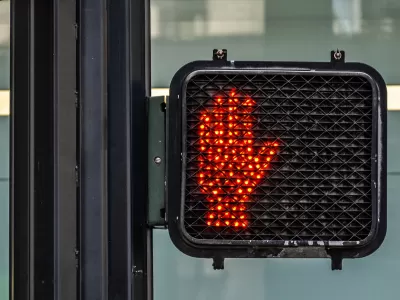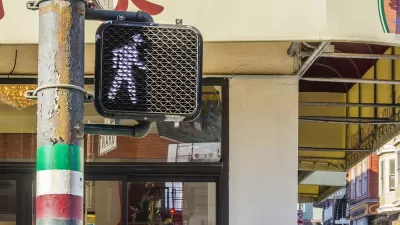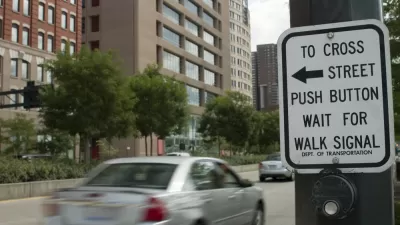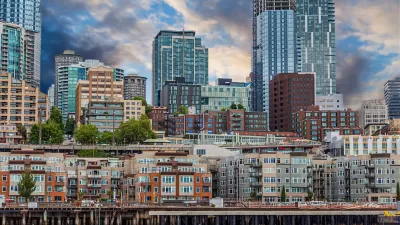Homeless people make up 0.4 percent of the state’s population but receive over 40 percent of jaywalking tickets.

A report commissioned by the Transportation Choices Coalition found that unhoused people received a disproportionate percentage of jaywalking tickets in Washington state, reports Greg Kim in The Seattle Times.
People experiencing homelessness received at least 41 percent of jaywalking fines in the state, despite making up just 0.4 percent of the population. “The jaywalking report found that people of color are also disproportionately stopped for jaywalking. Black people receive a fifth of jaywalking tickets given in the state, despite making up 4% of the population.”
A proposed bill to decriminalize jaywalking failed to make headway in the state legislature. Meanwhile, police continue to use jaywalking enforcement as a way to stop people they deem suspicious. “Sara Rankin, a homelessness law expert at Seattle University, said that when homeless people are issued fines, it increases the likelihood of them staying homeless. Ignoring fines can turn into a misdemeanor over time, making it more difficult to get a job, or it can make someone ineligible for shelter, housing or other benefits.”
FULL STORY: Jaywalking debate pits safety concerns against unnecessary stops of homeless people

Maui's Vacation Rental Debate Turns Ugly
Verbal attacks, misinformation campaigns and fistfights plague a high-stakes debate to convert thousands of vacation rentals into long-term housing.

Planetizen Federal Action Tracker
A weekly monitor of how Trump’s orders and actions are impacting planners and planning in America.

In Urban Planning, AI Prompting Could be the New Design Thinking
Creativity has long been key to great urban design. What if we see AI as our new creative partner?

King County Supportive Housing Program Offers Hope for Unhoused Residents
The county is taking a ‘Housing First’ approach that prioritizes getting people into housing, then offering wraparound supportive services.

Researchers Use AI to Get Clearer Picture of US Housing
Analysts are using artificial intelligence to supercharge their research by allowing them to comb through data faster. Though these AI tools can be error prone, they save time and housing researchers are optimistic about the future.

Making Shared Micromobility More Inclusive
Cities and shared mobility system operators can do more to include people with disabilities in planning and operations, per a new report.
Urban Design for Planners 1: Software Tools
This six-course series explores essential urban design concepts using open source software and equips planners with the tools they need to participate fully in the urban design process.
Planning for Universal Design
Learn the tools for implementing Universal Design in planning regulations.
planning NEXT
Appalachian Highlands Housing Partners
Mpact (founded as Rail~Volution)
City of Camden Redevelopment Agency
City of Astoria
City of Portland
City of Laramie





























